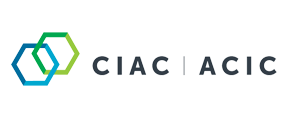CIAC draws attention to balanced trade in chemistry and plastics
November 26, 2024
In light of the recent announcement that President-elect Trump will seek to add tariffs on all goods imported from Canada, the Chemistry Industry Association of Canada (CIAC) draws attention to Canada and the United States of America’s balanced and mutually beneficial trade relationship in plastics and chemistry.
As Canada’s third-largest manufacturing sector, the chemistry and plastics industry account for over $100 billion in annual shipments. Nearly two-thirds of this is exported to the U.S. annually, with a reciprocal value returning to Canada from the U.S. each year. Canada-U.S. trade in chemistry and plastics amounts to $115 billion, with a slight 2.5 per cent surplus in favour of the U.S. The U.S. is Canada’s largest export market for chemistry and plastics. Conversely, Canada represents the second largest market for U.S. chemicals and plastics, second to Mexico.
“The chemistry value chain is deeply integrated across our shared border,” said Bob Masterson, President and CEO for CIAC. “Actions that disrupt the continental free trade in chemistry will have inflationary impacts across all manufacturing sectors and will be felt by citizens on both sides of the border and weaken our global export potential across all our sectors in both our countries.”
Chemicals play an important role in the economy and are in the manufacture of over 95 per cent of all finished goods. Canada’s chemistry and plastics industry is directly responsible for over 192,000 well-paid and highly skilled jobs.
The industry is highly integrated at all levels of chemistry and plastics production. Energy and raw materials from each country cross the border and are manufactured into industrial chemicals. These chemicals move bilaterally across the border again and are turned into higher value chemistries and products. In turn, those products are traded across the border again and are used in North America’s key manufacturing and export sectors, including the important automotive and transportation, mining and forestry, and buildings, construction and food packaging sectors.
The chemistry sector shares President-elect Trump’s concerns about the illegal movement of fentanyl and other synthetic drugs into and within North America. In their most recent submissions on the status of USMCA and opportunities for improvement in the review period, CIAC along with its colleagues at the American Chemistry Council and l’Asociación Nacional de la Industria Química (ANIQ) have called on negotiators to expand provisions in the Agreement’s Chemicals Annex to build closer coordination to combat the illegal movement of these substances and their precursors, while continuing to promote the legitimate trade in chemical substances.





